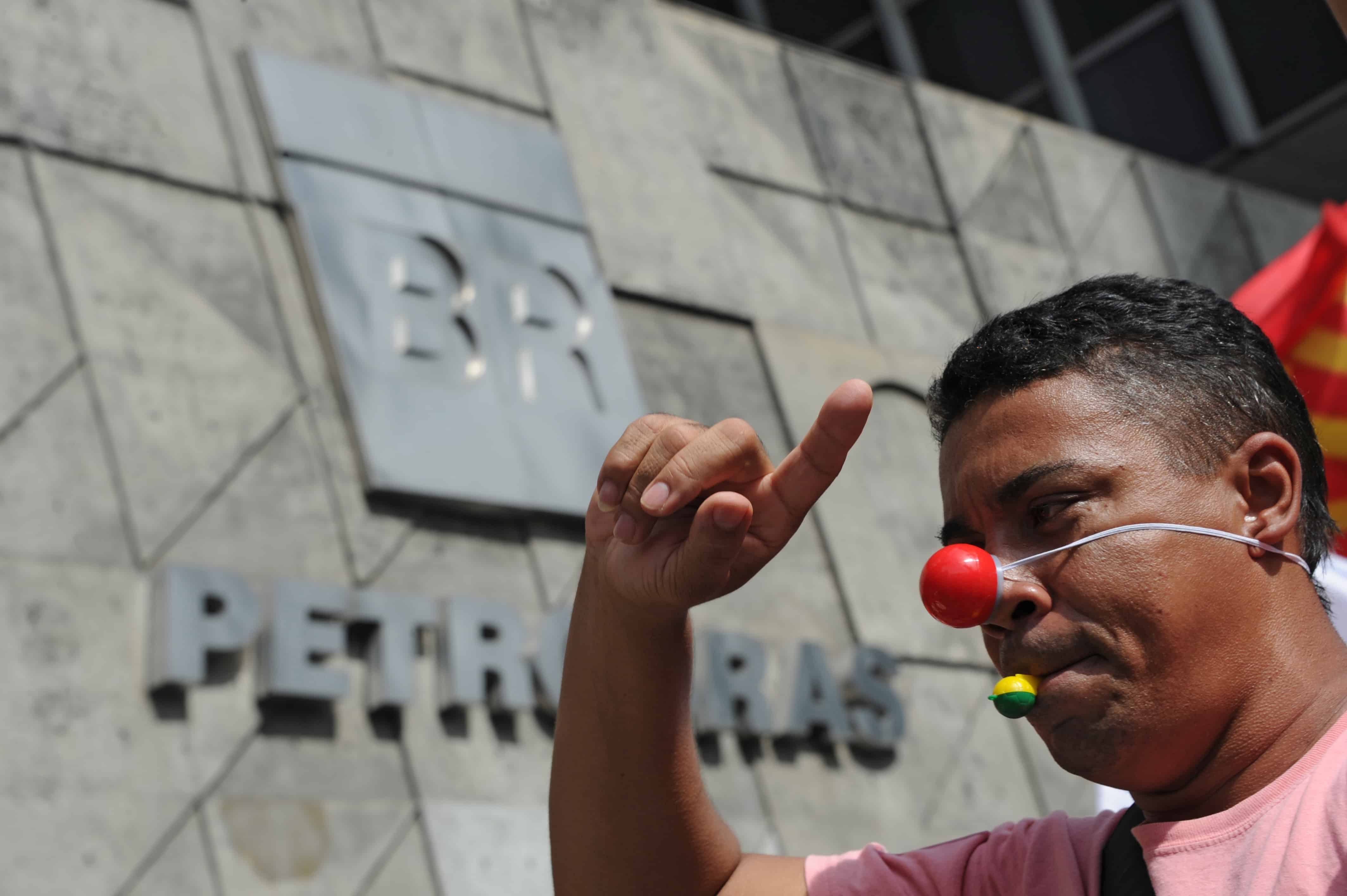Brazil is keeping credit-rating companies busy.
Moody’s Investors Service, Standard & Poor’s and Fitch Ratings have dished out 93 corporate downgrades since Jan. 1, already more than in any full year since 2002, and they may not be done. Speculation is mounting that Moody’s — which met with officials in Brazil last week — will lower the country’s rating, a move that would trigger cuts for businesses with close ties to the government, such as state-controlled companies and banks.
The deluge of downgrades is emblematic of the deepening crisis engulfing Brazil as a bribery scandal spreads and Latin America’s largest economy suffers its biggest contraction in a quarter century. The ratings cuts have prompted bond investors to shun the nation’s companies, sparking a surge in borrowing costs that’s choking off access to overseas credit.
“For sure, Moody’s will downgrade Brazil,” Juan Carlos Rodado, director of Latin America research at bank Natixis North America, said in an email. “We will have more corporate cuts.”
The dim outlook for the nation’s companies is apparent in the dollar-denominated bond market, where average yields have jumped to 7.27 percent, near a three-month high, according to JPMorgan Chase. That compares with an average of 5.52 percent for emerging-market corporates, the data show. The rising borrowing costs have caused Brazil’s foreign debt sales to plummet 80 percent this year.
Moody’s has a negative outlook on Brazil’s Baa2 rating, the second-lowest level of investment grade. In an emailed statement Thursday, Moody’s said its trip to Brazil was “a regular technical visit similar to the ones we conduct periodically with authorities of all sovereigns Moody’s rates.”
New York-based Moody’s cited Brazil’s economic woes and deteriorating finances when it put the country on negative outlook in September. Things have only gotten worse, with Moody’s predicting in a report Thursday that gross domestic product will shrink 1.8 percent this year. That’s more bearish than the 1.5-percent contraction forecast by analysts the central bank surveyed.
A probe into corruption at Petroleo Brasileiro also has ensnared more of the nation’s companies in recent months, as well as politicians, fueling calls to impeach President Dilma Rousseff.
Moody’s twice lowered its rating for Odebrecht Engenharia e Construcao in the past month after the Salvador, Brazil-based builder’s chief operating officer was arrested June 19 as part of the probe into companies that allegedly bribed Petrobras executives for contracts. Moody’s cut Petrobras to junk in February.
Moody’s, Standard & Poor’s and Fitch have issued only 15 corporate upgrades this year.
The likelihood of a sovereign downgrade has increased and “will very likely be reflected in the ratings of quasi- sovereign credits that have strong linkages to the government,” Brigitte Posch, the head of emerging-market corporate debt at Babson Capital Management, said by email. The bribery investigation “feeds into and exacerbates already weak business confidence, which in turn affects the willingness of companies to invest in Brazil.”
Rousseff has been reducing spending and increasing taxes to bolster the nation’s finances and stave off another downgrade after S&P cut the country’s rating to the cusp of junk in March 2014.
“Brazil is hanging on to its investment-grade status by its fingertips,” Nicholas Spiro, a managing director at advisory firm Spiro Sovereign Strategy, said by telephone from London. “It is caught in a vicious circle in which the severity of the economic downturn, the increasing strain on public finances, the fallout from the Petrobras scandal and the challenging external environment are all feeding on each other.”
Contributors: Paula Sambo in Sao Paulo and Rita Nazareth in New York.
© 2015, Bloomberg News






